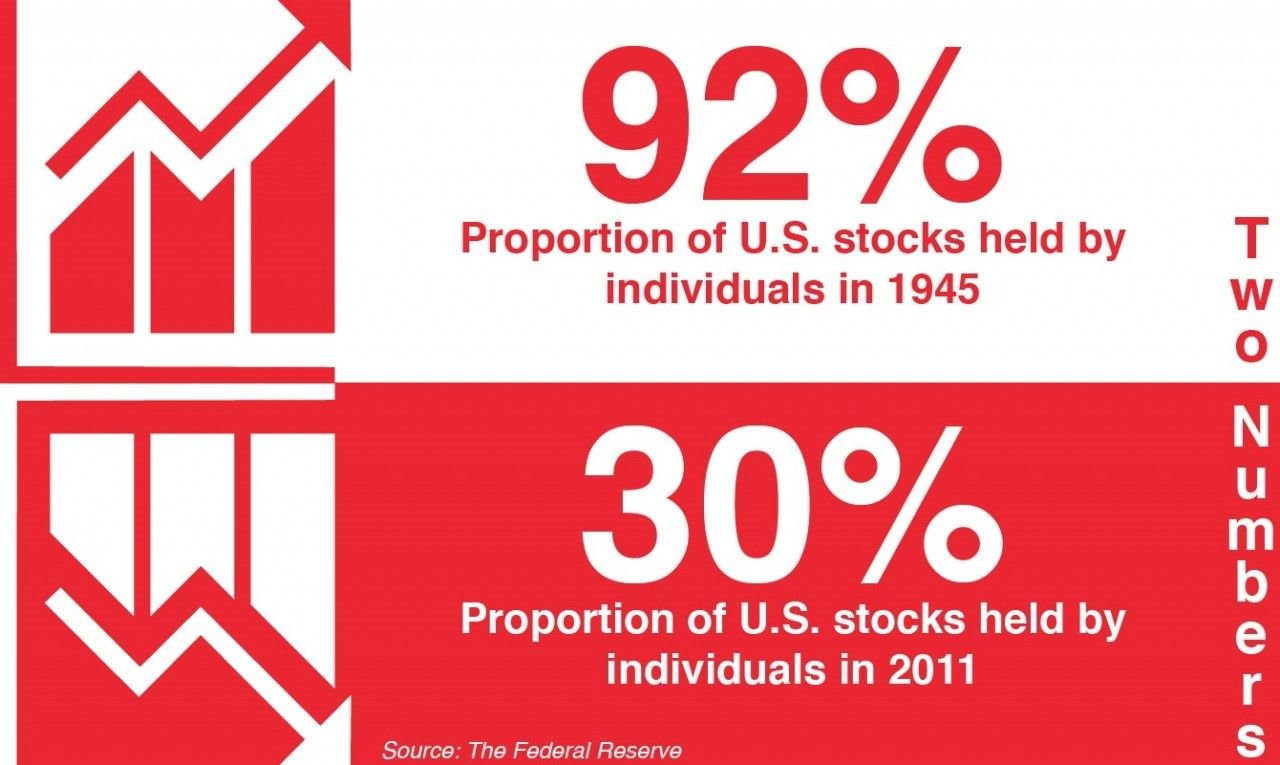

While Twitter's successful IPO stole all the headlines, a continuing trend in the stock market has gotten little attention: the vanishing small investor.
It's a pretty good bet you didn't by any TWTR shares: The company's IPO was notable for its low level of retail investor participation. Facebook's public offering a year ago wasn't any different. Whether you call them retail investors, mom-and-pop shareholders, or the high-net-worth crowd, individuals used to be a pillar of the market, demanding and receiving attention from companies and stock analysts. Now big institutions dominate the scene due to the relentless growth of funds. There are more mutual funds, pension funds, quant funds, and stock index funds than ever before, and they are growing bigger. That has shifted the balance of power in the market. Today the vast majority of stocks are held indirectly. The people who will ultimately benefit or suffer from changes in value don't decide when to buy and sell. Outside of a clubby group of investment managers and fund entrepreneurs, Americans have little say in the management of the companies in which their money is invested.
Corporate governance expert Bob Monks calls the rise of indirect stock ownership "capitalism without owners." Separation of beneficial ownership from voting control is probably a factor in why CEO pay remains so high relative to most other workers. But there are other implications, too. When institutions dominate the market, individual investors enter at their own risk, competing against the big fish and their sophisticated strategies. That in turn sets up a vicious cycle, in which fewer and fewer people have the time and ability to take on the challenge of investing. Maybe when the next big IPO comes along it shouldn't garner as much attention. For most ordinary folks, there's not much reason to care.














